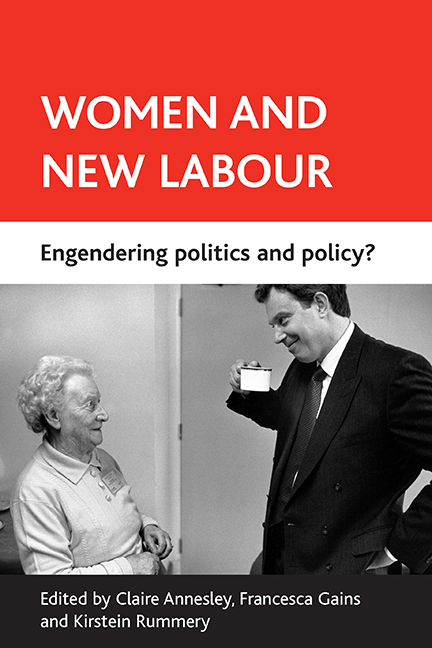six - Two steps forward, one step back: the gender dimensions of Treasury policy under New Labour
Published online by Cambridge University Press: 15 September 2022
Summary
Introduction
Governing in a society that is heavily gendered inevitably gives the policy process gender consequences, but it also makes those consequences very difficult to isolate. For gender relationships in a society such as the UK's are not simply ubiquitous. They are also immersed, and sub-subsumed into wider relationships of class, ethnicity, region and age; and they are themselves in flux. Policy initiatives therefore not only impact on a stable and isolated set of gender relations. They also impact on what is essentially a moving and often an obscured target. To assess the importance and centrality of those policy initiatives to a world so gendered, it is essential first briefly to establish the nature of those movements and the character of that immersion.
The New Labour government inherited an economy in which more and more women carried the double burden of paid and unpaid work. They also inherited a society in which the vast majority of lone parent families were headed by women, and one in which women – either married or living alone – were significantly ‘under-pensioned’ relative to men. A greater percentage of women worked outside the home, and for pay, than ever before; but they did so, in the main, from within family structures in which the distribution of domestic roles still left them with the bulk of responsibility for child rearing and the care of the old. The rules governing paid work in most privately owned businesses, the length of the male working day in those businesses, and even the structure of the school calendar in the UK of the 1990s – all remained largely insensitive to the cross-pressures they inevitably created for women attempting to mix unpaid work inside the home with paid work outside it; so obliging large numbers of those women to settle for low-paid and part-time employment of an inherently unsatisfactory kind. These cross-pressures of home and work then fell unevenly on women of different class and ethnic backgrounds. Traditional work roles were most heavily entrenched in Asian ethnic communities. Poverty and job insecurity were greatest among working class women. Access to public health and education were easiest for women (and children) in the middle class, and so on.
- Type
- Chapter
- Information
- Women and New LabourEngendering Politics and Policy?, pp. 117 - 132Publisher: Bristol University PressPrint publication year: 2007



